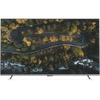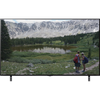A comparison of specs, key information, reviews, and best pricing from top retailers
Last updated -- hours ago | Report incorrect information
What we think

The PerfectRec TV team Learn more
Updated January 10, 2024·
If you prioritize gaming and are willing to spend more, consider the LG NANO90, which offers better performance for gaming and sports content, as well as improved viewing in bright rooms. However, if budget is a concern and you mainly watch movies, TV shows, or news content, the Amazon Omni Series is a solid choice that is more affordable while still providing good overall picture quality and sound. Give Feedback
this description is based on the product variant with some specs and product variant with some specs. At the time of writing, the variant with some specs cost some dollars and the variant with some specs cost some dollars.
Advantages of the Amazon Omni Series (LCD)
- The Amazon Omni Series (LCD) has no clear advantages over the LG NANO90 (LCD).
Advantages of the LG NANO90 (LCD)
- Very good for gaming
- Good for use as monitor
- Good for upscaling
- Good motion processing
- Very good reflections
Key differences
Sports
5.8
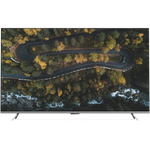
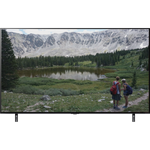
6.8
2.5/10
MOTION PROCESSING
7.5/10
60Hz
REFRESH RATE
120Hz
8.0/10
INPUT LAG SCORE
8.7/10
6.6/10
UPSCALING
7.5/10
7.3/10
SDR BRIGHTNESS SCORE
7.8/10
Yes
HLG SUPPORT
Yes
The LG NANO90 (LCD) is only fair for sports, while the Amazon Omni Series (LCD) is poor.
The Amazon Omni Series struggles more with motion clarity due to a lower response time, making it less ideal for viewing sports where fast-paced action is common, and it handles reflections poorly, impacting visibility in well-lit environments. In contrast, the LG NANO90 offers better motion processing thanks to a higher response time and deals with reflections much more effectively, granting a clearer picture for sports watching, even in rooms with many lights.
Gaming
5.6


8.0
6.0/10
RESPONSE TIME SCORE
7.6/10
8.0/10
INPUT LAG SCORE
8.7/10
2.5/10
MOTION PROCESSING
7.5/10
0.0/100
GAMING LOCAL DIMMING
50.0/100
5.9/10
GAME HDR BRIGHTNESS SCORE
7.6/10
The LG NANO90 (LCD) is very good for gaming, while the Amazon Omni Series (LCD) is poor.
The Amazon Omni Series has a poorer response time and operates at a 60Hz refresh rate, which makes it less suitable for fast-paced gaming where quick image updates are critical. In contrast, the LG NANO90 offers a good response time and a higher 120Hz refresh rate, which means it can handle rapid movements more smoothly, making it very good for gaming.
Bright Room
6.3


6.9
5.3/10
VIEWING ANGLE
6.3/10
7.3/10
SDR BRIGHTNESS SCORE
7.8/10
5.7/10
HDR BRIGHTNESS SCORE
7.2/10
5.9/10
REFLECTIONS SCORE
8.0/10
The LG NANO90 (LCD) and Amazon Omni Series (LCD) are both only fair for bright room, though the LG NANO90 (LCD) is somewhat better.
The Amazon Omni Series handles reflections poorly, which can be a drawback in brightly lit environments, although it has a good SDR brightness and its contrast can help with picture quality in such conditions. The LG NANO90, on the other hand, manages reflections very well and also has good SDR and HDR brightness, but its lower contrast might make its picture quality less impressive in bright rooms compared to displays with higher contrast.
Cost
$720


$1,719
$0
$500
$1,000
$1,500
$2,000
$2,500
$3,000
The Amazon Omni Series (LCD) has a price of $720 and the LG NANO90 (LCD) costs $1,719.
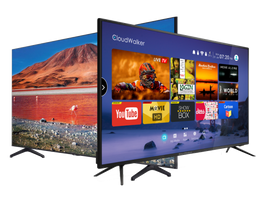
Let Us Help Find Your Perfect TV
Find your new TV
Key similarities
Picture Quality
6.1


6.1
7.38/10
CONTRAST
5.28/10
6.2/10
COLOR VOLUME SCORE
6.6/10
LED
PANEL TYPE
LED FALD
VA
PANEL SUB-TYPE
IPS
The Amazon Omni Series (LCD) and LG NANO90 (LCD) both have only fair picture quality.
Movies & TV
5.6


5.6
7.38/10
CONTRAST
5.28/10
6.4/10
BLACK UNIFORMITY
5.3/10
6.6/10
UPSCALING
7.5/10
Yes
HDR10 SUPPORT
Yes
No
HDR10+ SUPPORT
No
Yes
DOLBY VISION SUPPORT
Yes
The Amazon Omni Series (LCD) and LG NANO90 (LCD) are both poor for movies & TV.
The Amazon Omni Series struggles with movies and cinematic TV due to its lack of local dimming and mediocre black uniformity, limiting its ability to display deep blacks and high contrast in dark scenes. The LG NANO90 also falls short for cinematic content because of its low contrast ratio and poor black uniformity, which compromise the depth and richness of images, especially in darker settings.
Cartoons & Animation
5.8


5.6
5.9/10
COLOR GAMUT SCORE
6.5/10
6.2/10
COLOR VOLUME SCORE
6.6/10
7.3/10
SDR BRIGHTNESS SCORE
7.8/10
5.2/10
COLORS OUT OF THE BOX SCORE
4.3/10
6.0/10
GRAY UNIFORMITY
5.9/10
The Amazon Omni Series (LCD) and LG NANO90 (LCD) are both poor for cartoons & animation.
The Amazon Omni Series LCD TVs have poor colors straight out of the box and a limited color gamut, making it less ideal for vibrant animations. Similarly, the LG NANO90 struggles with the same issues, delivering underwhelming color performance for content that relies heavily on bright and diverse colors.
News, Talk, & Other TV
6.0


6.4
7.3/10
SDR BRIGHTNESS SCORE
7.8/10
6.6/10
UPSCALING
7.5/10
The LG NANO90 (LCD) and Amazon Omni Series (LCD) are both only fair for news, talk, & other TV.
The Amazon Omni Series performs adequately in upscaling and SDR brightness, which are vital for clear and bright news presentations, but its weaker contrast and color performance may affect the depth and vibrancy of the image. The LG NANO90 offers better contrast and upscaling, providing a more detailed image for regular TV programming, but it also faces limitations in color accuracy and local dimming, which could impact overall picture quality.
Give feedback
We’re constantly working to improve.
How the Amazon Omni Series (LCD) and the LG NANO90 (LCD) compare to other TVs
Spec Comparison
| Amazon Omni Series (LCD) | LG NANO90 (LCD) |
GENERAL | |||
|---|---|---|---|
| Price | |||
$720 | $1,719 | ||
Brand | |||
Brand | Amazon | LG | |
Release Date | |||
Release Date | September 4, 2021 | March 2, 2021 | |
Full name | |||
Full name | 4K65M600A | 65NANO90 | |
Screen Size | |||
Screen Size | 65" | 65" | |
Screen Resolution | |||
Screen Resolution | 4K | 4K | |
TV FEATURES | |||
|---|---|---|---|
Operating System | |||
Operating System | Fire OS | webOS | |
Sound Quality Score | |||
Sound Quality Score | 6.3/10 | 6.4/10 | |
NextGen Ready | |||
NextGen Ready | No | No | |
HDMI Ports | |||
HDMI Ports | 4 | 4 | |
Coax Ports | |||
Coax Ports | 1 | 1 | |
DISPLAY QUALITY SCORES | |||
|---|---|---|---|
Picture Quality Score | |||
Picture Quality Score | 6.2/10 | 6.1/10 | |
Bright Room Score | |||
Bright Room Score | 6.3/10 | 7/10 | |
Gaming Score | |||
Gaming Score | 5.7/10 | 8/10 | |
Movies & TV Score | |||
Movies & TV Score | 5.7/10 | 5.6/10 | |
Sports Score | |||
Sports Score | 5.9/10 | 6.8/10 | |
PHYSICAL | |||
|---|---|---|---|
Dimensions w/o Stand (H x W x D) | |||
Dimensions w/o Stand (H x W x D) | 33.3" x 57.1" x 2.9" | 33" x 57.2" x 1.8" | |
Dimensions with Stand (H x W) | |||
Dimensions with Stand (H x W) | 35.6" x 57.1" | 35.6" x 57.2" | |
Weight without Stand | |||
Weight without Stand | 42.5 lbs | 62.2 lbs | |
VESA Mount | |||
VESA Mount | 400 x 200 | 400 x 400 | |
DISPLAY | |||
|---|---|---|---|
Color Depth | |||
Color Depth | 10 bit | 10 bit | |
Black Frame Insertion | |||
Black Frame Insertion | No | Yes | |
Auto Low Latency Mode | |||
Auto Low Latency Mode | Yes | Yes | |
Contrast | |||
Contrast | 7.4/10 | 5.3/10 | |
Local Dimming | |||
Local Dimming | 2.5/10 | 5.2/10 | |
SOUND | |||
|---|---|---|---|
Speaker Setup | |||
Speaker Setup | 2.0 | 2.2 | |
Speaker Power | |||
Speaker Power | 16 W | 40 W | |
Dolby Atmos | |||
Dolby Atmos | Bypass only | Yes | |
DTS:X | |||
DTS:X | No | No | |
Shopping
Amazon Omni Series (LCD)
See more
Dig into reviews and images
Techradar
Nick Pino | July 2022
"If you want a competent budget screen with some handy features, the Amazon Omni TV delivers an experience that punches well above its price tag. You’ll also get the benefit of Fire TV’s new UI right out of the box. It’s clean and simple to understand, plus it puts content first. In the picture-quality department, the Amazon Omni is a surprising star among some of its dimmer, less colorful rivals."
LG NANO90 (LCD)
See more
Dig into reviews and images
Techradar
John Archer | July 2021
"Here we have HDR pictures that look bright, but also manage to typically hit decently deep black levels.WebOS continues, though, to be one of the easiest to use. Connections are strong for a mid-range TV. Native 4K pictures look crisp and detailed."
Get a great deal on the Amazon Omni Series (LCD) or the LG NANO90 (LCD)
About Amazon
Amazon, the largest online retailer in North America, has forged partnerships with TCL and Hisense to produce white-label TVs incorporating their Fire OS software. These Amazon-branded TVs typically compete in the low-end and mid-range segments, offering compelling price points. Leveraging their strong reputation, Amazon has swiftly built brand trust in the TV market despite being relatively new to it. To enhance their popularity, these TVs integrate features from the Amazon ecosystem, including Alexa, providing users with a seamless and interconnected TV experience.
About LG
LG, a prominent TV brand from Korea, has played a significant role in popularizing OLED TVs. OLED technology is hailed as the future of TV technology. Their TVs employ WebOS, a proprietary smart TV software that not only offers seamless functionality but also includes gaming-specific features, earning praise from players worldwide. Often regarded as the gateway to unparalleled viewing experiences, LG's mid-range OLEDs come highly recommended, making them a worthwhile investment for those willing to stretch their budget for superior quality.
Give feedback
We're constantly perfecting our model
TV guides you might be interested in
More comparisons for you
Compare Amazon Omni Series (LCD) vs. TCL S435 (LCD)
VS
Compare Amazon Omni Series (LCD) vs. Hisense U7G (LCD)
VS
Compare Amazon Omni Series (LCD) vs. Hisense U7H (LCD)
VS
Compare LG NANO90 (LCD) vs. Hisense U8G (LCD)
VS
Compare LG NANO90 (LCD) vs. LG B1 (OLED)
VS
Compare LG NANO90 (LCD) vs. Samsung S85D (OLED)
VS
FAQs
FAQs about TVs
Why trust us
This information was produced and vetted by the PerfectRec TVs team. We are a product research and recommendation organization that meticulously reviews and evaluates the latest TV information and makes it digestible for you.
By the numbers
385
TVs evaluated
33,110
TVs stats compiled
21
Proprietary TVs ratings developed
121,230
Recommendations made
18,185
Consumer hours saved
About the TV team
Joe Golden, Ph.D
CEO and TVs Editor
Joe is an entrepreneur and lifelong electronics enthusiast with a Ph.D in Economics from the University of Michigan.
Jason Lew
Staff Expert & Software Engineer
Jason is a staff expert and software engineer that has been making laptop recommendations for 7 years and moderates one of the largest laptop subreddits.
Chandradeep Chowdhury
Staff Expert & Software Engineer
Chandradeep is a staff expert and software engineer and expert in televisions and monitors. He’s been making monitor recommendations for ten years.
Jaime Roldán
TVs Expert
Jaime is a Colombia-based TV expert. He is an electronics engineer with 8 years of experience in the telecom sector and has been making TV recommendations for 12 years.
